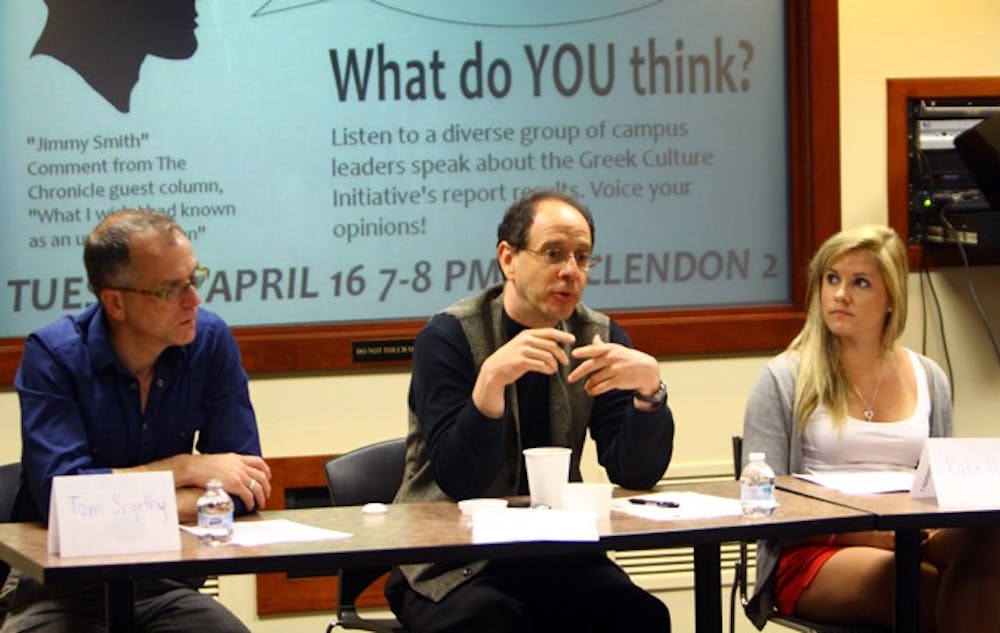A panel of students and administrators weighed benefits and drawbacks of greek culture on campus following the release of a report by the Greek Culture Initiative.
The discussion, held Wednesday evening, focused on the Report on Gender and Greek Experience, which was released in March. The speakers included Gary Glass, assistant director for outreach and developmental programming for Counseling and Psychological Services, junior Katie Howard, president of the Panhellenic Association, Tom Szigethy, associate dean and director of the Duke Student Wellness Center and junior Jay Vitha, executive vice president of the Interfraternity Council. About 10 people attended the event.
Of those surveyed, 38 percent of greek women reported experiencing sexual assault, defined as unwanted sexual contact, compared to 30 percent of independent women and 29 percent of women in selective living groups.
“The sexual assault statistics are a huge issue,” Vitha said. “IFC potentially might play a role in that.”
Howard noted that many people in the Panhel community perceive a difference between sexual assault and unwanted sexual contact, but the GCI survey combined the two into one category, potentially inflating the recorded statistics. “Regardless, it is unwanted, and that is what makes it not OK,” Howard said.
The community should look at deeper issues in the party culture on campus, Howard said. She added that girls should question why they feel compelled to binge drink before attending parties.
Howard questioned if girls drank more to feel accepted by their male peers, adding that girls are most often assaulted when intoxicated.
Women should enter into sexual encounters prepared to let their partner know the extent to which they’re willing to consent, Howard said.
“Consent is extra important when one or both people are intoxicated,” she said. Under North Carolina state law, however, consent cannot be given when a person is intoxicated.
High rates of sexual assault are not new to Duke, Glass noted.
“It is disturbing that we are continuing to hear this, and that no change is happening,” he said.
Howard added that women at universities across the country are facing similar effects of sexual assault and peer pressure.
“This isn’t a Duke-specific thing,” she said. “This is a college campus thing.”
The survey found that 82 percent of Greek students feel that they belong at Duke, compared to 67 percent of students involved with an SLG and 64 percent of independent students.
Glass said that many women are “surrendering self-respect and respect from others” in order to increase their sense of belonging.
Vitha said critics should focus on the progress being made in the greek community in addition to noting the problems.
IFC implemented a policy to issue prevent, act challenge and teach training to all new members.
Szigethy said that most constructive discussion about Duke culture occurs after problems have already arisen.
“Everybody should buy into what we are actually doing,” Vitha said. “Our sense of belonging does not come from power that we feel over women.”
There were no representatives from the Inter-Greek Council or National Pan-Hellenic Council on the panel. Junior Jack Riker, president of IFC, also did not attend.
Get The Chronicle straight to your inbox
Signup for our weekly newsletter. Cancel at any time.

